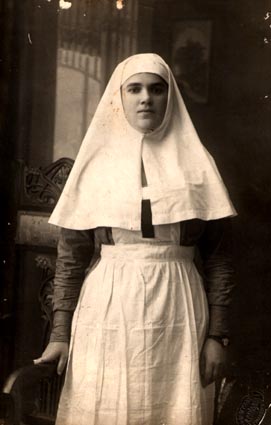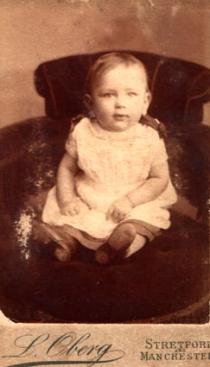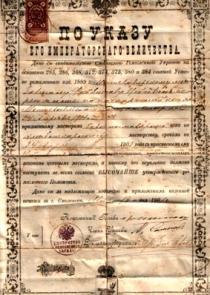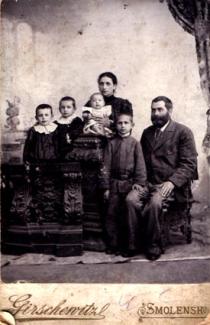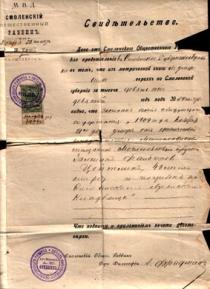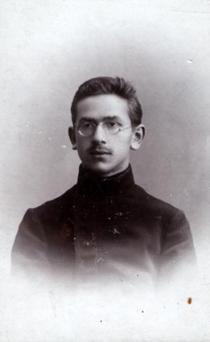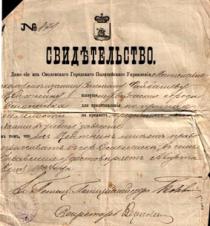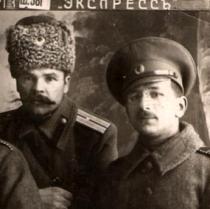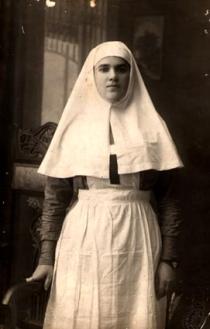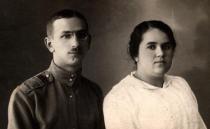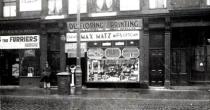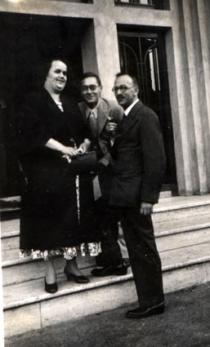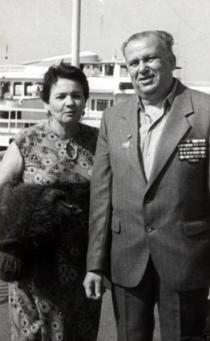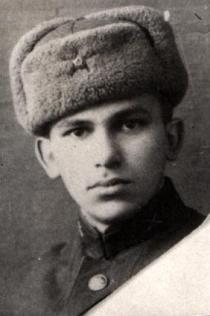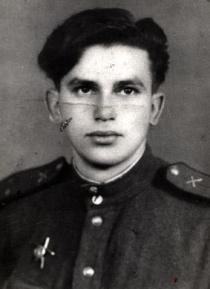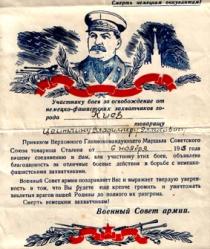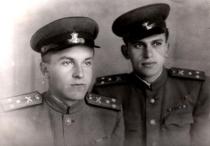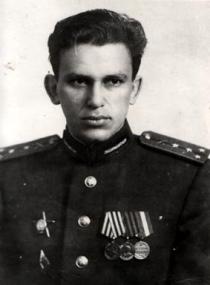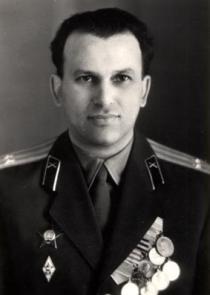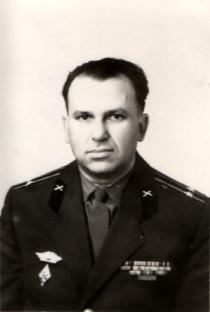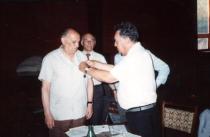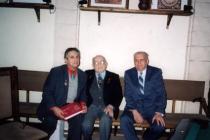This is my mother Mariana Havkina, a nurse in the Jewish hospital in Smolensk. The picture was made in Smolensk in 1915.
My mother's family lived in the Jewish town Gusino in the vicinity Smolensk. Maternal grandfather's name was Yuda Havkin. I do not remember grandmother's name. Both of them were from Gusino. The family was well-heeled. Grandfather had a mill, the only one in the location and it was rather income-bearing. Grandmother was a housewife and that was traditional. There were 4 children in the family: three elder sons, unfortunately I do not remember their names and my mother born in 1897. Mother was always called Russian name Mariana. The family was religious. All mother's siblings went to cheder. Mother did not go to cheder, but she got Jewish education at home. Mother got some elementary medical education. It must have been courses for the nurses.
My paternal grandfather Zalman Tseitlin and grandmother Sara-Kreina Tseitlin lived in an ancient Russian city Smolensk. Grandfather and his young wife left for England to seek fortune. They had lived in Manchester, England 4 years. Their first child, my father was born in Manchester in 1892. In 1896 grandparents and their little son came back to Smolensk.
My father finished realschule in Smolensk. He worked in the local bank after finishing school. When WW1 began, father was drafted in the army. He was not drafted in specific troops. He was assigned an officer as he was educated. Father was a gun-soldier in the lines. He was wounded in the front and was sent to hospital in Smolensk. It was a hospital for the wounded Jews and all medical workers were Jews. My mother Mariana Havkina worked in that hospital as a nurse. My parents were young. They fell in love with each other and got married shortly after they had met, while father was still being treated in the hospital. They had a traditional Jewish wedding in accordance with the rites. Mother was a housewife after getting married.
Having discharged from the hospital, father entered the party of Bolsheviks being captivated with the communist ideas. He was overwhelmed in the revolutionary work. After the Revolution of 1917 father was appointed the deputy head of Smolensk municipal militia. During the Civil War he was appointed the commissar [political officer] of the anti-gang squad, to be more exact the struggle against Makhno gang. Father took part in the Civil War until 1920. Then father was demobilized from the army and was involved in financial and economic work. He was an educated person. There were few people like that back at that time. Parents moved to Moscow before I was born. Father was given an apartment in a large (for those times) 7-storied house in the center of Moscow at Nikitinskiy boulevard.
Our family was friendly and bonded. Mother was very kind and hospitable. Our house was full of guests: mother's pals and friends, relatives, who lived in Moscow. Brothers often came from Smolensk. Father had many friends. Father read a lot and was an erudite. He had rich library. He also nurtured in me love to books. Parents were pious, but they observed Jewish rites and marked Jewish holidays paying a tribute to the traditions. Jewish holidays were occasion to get together and have fun.
